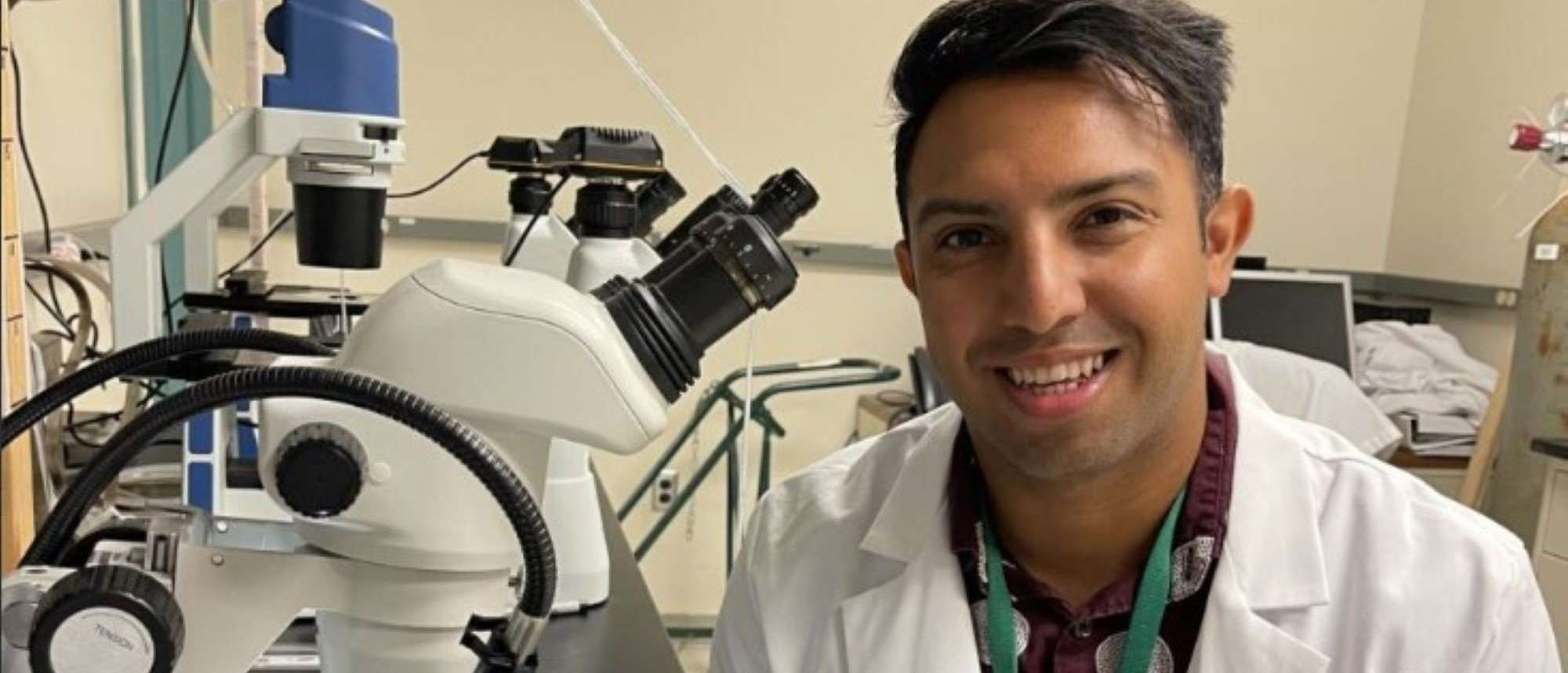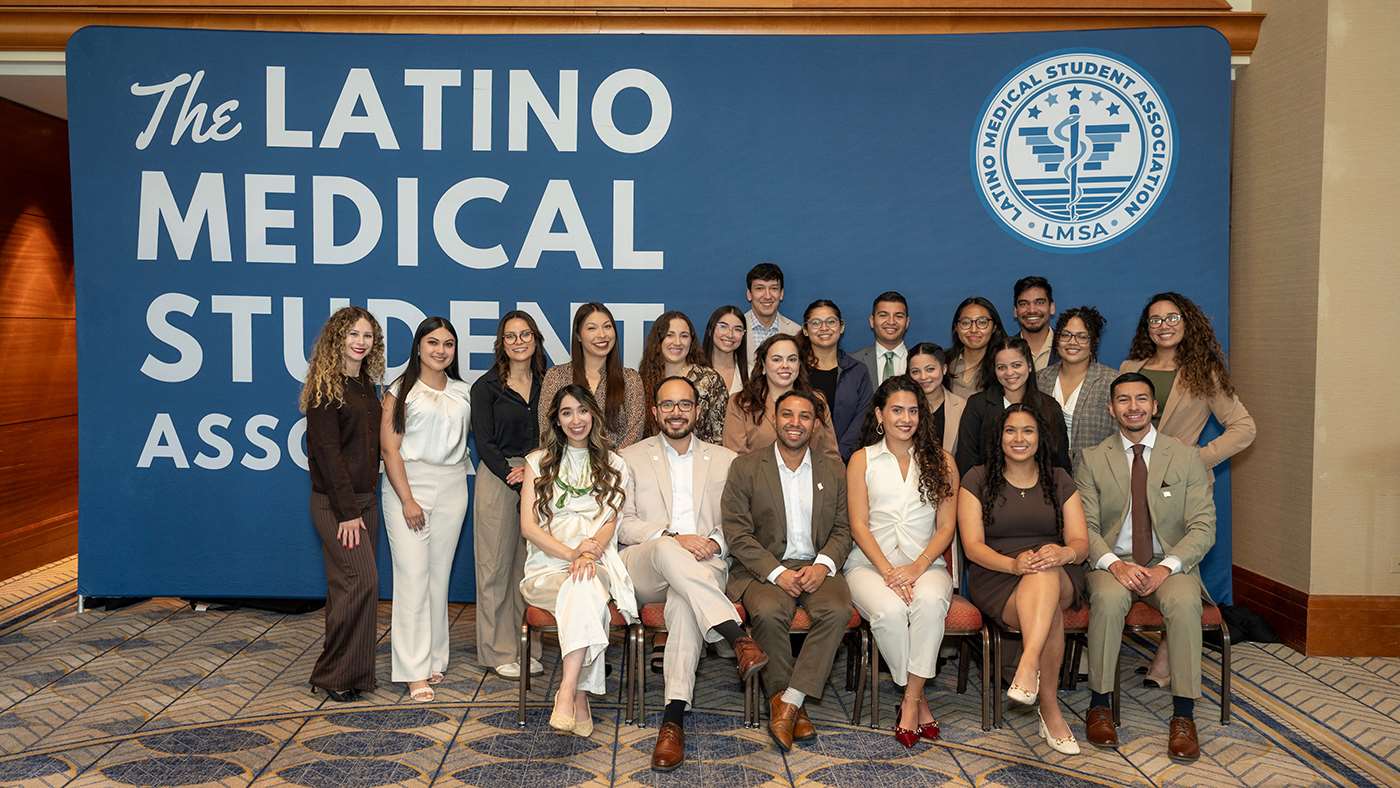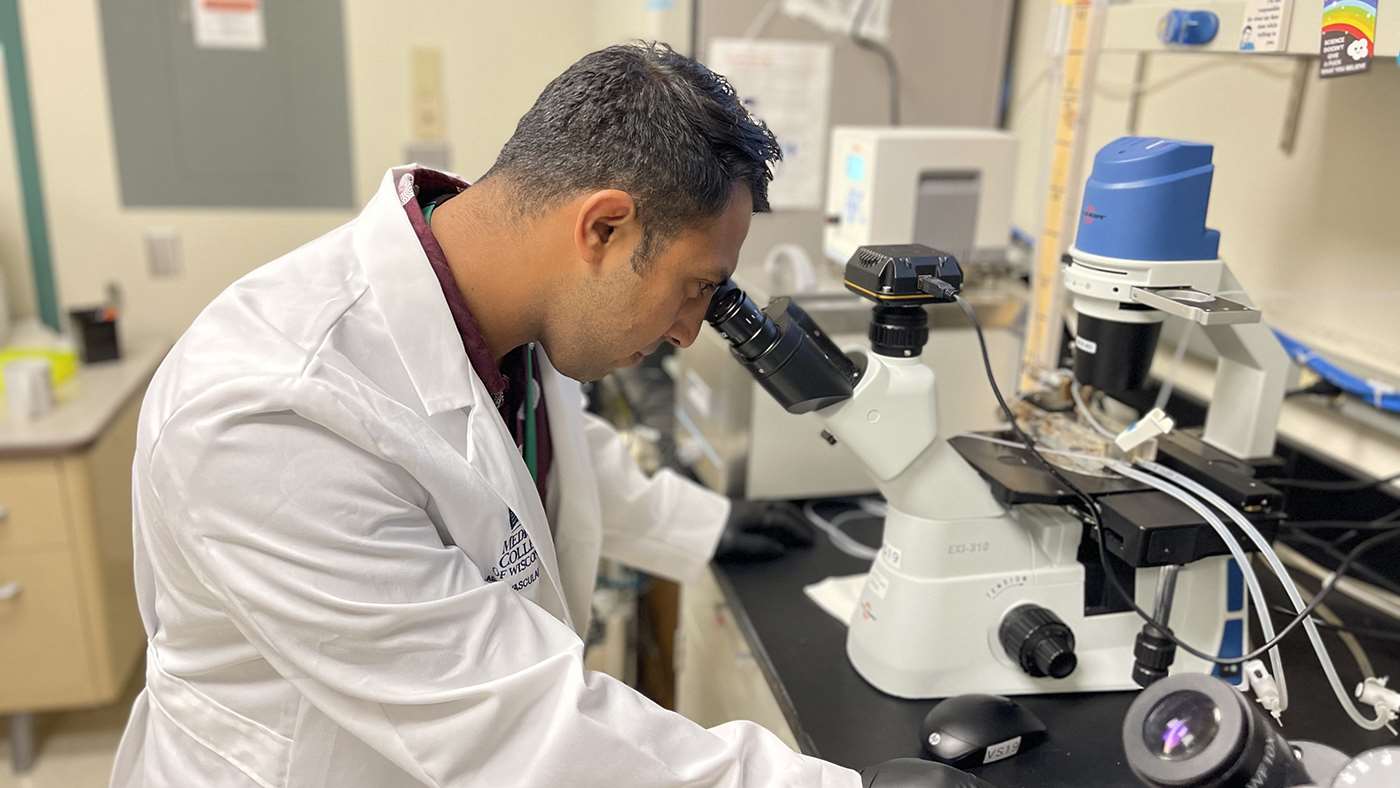MCW Student Focuses on Giving Back Through Research and Leadership

When he was young, Cristhian Gutierrez Huerta, now a sixth-year MD-PhD student at the Medical College of Wisconsin (MCW), slept in a tiny bed beside the dryer in his family’s mobile home in San Diego. On the weekends, the family of 13 drove over the border to see relatives in nearby Tijuana. A special night out was ordering off the McDonald’s $1 menu.
“I was frustrated with our economic circumstances,” says Gutierrez Huerta, who decided at a young age that he would be the first in his family to finish high school and attend college. He majored in math at the University of California, Merced, thinking he’d become a teacher and then perhaps a principal.
But a summer internship at the Department of Energy’s Joint Genome Institute at Lawrence Berkeley National Laboratory changed his trajectory. There, Gutierrez Huerta met Eddie Rubin, MD-PhD, who played a major role in the Human Genome Project and convinced Gutierrez Huerta to think about medical school and research.
“For him to have in-depth knowledge about not just what one research lab there was doing, but how all 200 of them were working together to tackle national problems, really blew my mind,” says Gutierrez Huerta. “It ignited this passion in me to follow that path.”
Gutierrez Huerta returned to school and added biology as a second major. After graduation, he spent two years under the tutelage of Tiffany Powell Wiley, MD-MPH, a National Institutes of Health (NIH) researcher who studies the impacts of social determinants of health on obesity and cardiovascular risk in underserved Black communities.
“She really taught me what it was to be a physician-scientist and to not just care about science, but to use science as a tool to be able to improve the lives of those around us,” he says.
Advocating at the National Level

As president of the Latino Medical Student Association, Cristhian Gutierrez Huerta played an integral role in developing this year’s national conference, which had more than 1,600 participants.
Gutierrez Huerta had always planned to give back to his community.
In fact, today he serves as the president of The Latino Medical Student Association (LMSA), a national organization created to unite and empower current and future physicians through service, mentorship, and advocacy.
He first got involved with the organization when the COVID-19 pandemic was in full swing. Then as a second-year, he and other students in MCW’s LMSA chapter applied for an LMSA grant to put on outreach events about vaccine hesitancy in Milwaukee’s Latino communities.
From there, Gutierrez Huerta decided to get involved at the national level, remembering the advice of one of his mentors on the importance of leadership. He held five different executive positions before becoming president this year.
“My entire platform was about creating more resources for students like myself who come from under-resourced communities,” he said.
Early on in his presidency, he played an integral part in the execution of the LMSA’s national conference, which was held last month in Chicago and attracted more than 1,600 participants.
Post-conference, one of his first orders of business is creating an online bootcamp for first and second-year medical students to help improve the Latino medical student pass rates for several high-stakes exams.
“My passion really is to make sure that all of our students have adequate resources in their medical education journey so that they pass (these exams) and graduate on time,” he says.
Studying a Disease that Disproportionately Affects Latinos

Cristhian Gutierrez Huerta, a sixth-year MD-PhD student, studies risk factors for heart disease in the lab of Andreas M. Beyer, PhD, professor of medicine and physiology.
In addition to giving back through leadership, Dr. Powell Wiley showed Gutierrez Huerta how to give back through research.
As with the Black community, Latinos face high rates of heart disease. When Gutierrez Huerta enrolled at MCW, he eventually gravitated to the lab of Andreas M. Beyer, PhD, professor of medicine and physiology and co-director of the basic and translational research program in cardio-oncology.
In Dr. Beyer’s lab, Gutierrez Huerta studies how risk factors for heart disease, including high cholesterol and glucose levels, disrupt and change the mitochondrial structure in blood vessel endothelial cells. Mitochondria play an important role in the creation of energy by breaking down glucose and fatty acids, and they can change shape – splitting apart or fusing – to help meet that energy demand.
But, too much cholesterol or glucose throws off that process, impairing blood flow to the heart, which causes damage and, eventually, leads to heart attacks.
Using human cells and rat models, Gutierrez Huerta is looking at ways to reverse the damage.
“The hope is that one day we can target these arteries and change their mitochondrial structure,” he says. “Then they will be able to properly send blood to all of the heart tissue to avoid heart disease and heart attacks.”
Finding Support Through Shared Stories
Gutierrez Huerta will defend his PhD in December and then spend the following two years wrapping up clinical work for his MD. After that, he’ll join a residency program. The educational path that he started down more than six years ago is a long one and there have been struggles along the way.
“This path I have taken is extremely difficult,” he says. “The academic rigor and the high expectations are difficult to deal with. Not coming from a privileged background, I've had to do a lot of learning outside the classroom, too, things like professional development and public speaking.”
He says his connections with other medical students with similar backgrounds have helped him through those struggles. He recently bonded with one of his LMSA vice presidents after she posted a photo with her parents in their mobile home park – just like the one he grew up in.
“Finding these shared stories can be enough to help you keep going,” he says. “You find people who are traveling a similar path and you realize we can build community around that during this stressful time.”



